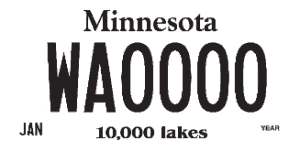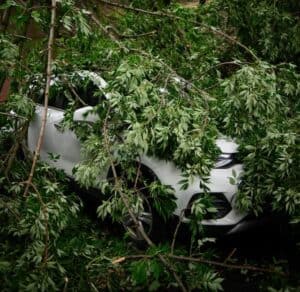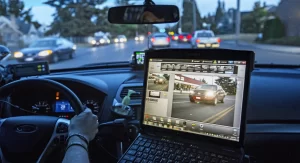“Why was I stopped for DWI?”
This is one of the most common questions fielded by our experienced DWI lawyers when providing consultations for drivers who’ve been arrested and charged with DWI.
Some of the top reasons are obvious. Think: swerving across multiple lanes in front of a state trooper. Other reasons are less obvious and surprising to many people.
With experience comes knowledge. Over the years our lawyers have identified some of the most common reasons drivers are stopped for DWI. All of the possible reasons drivers are stopped for DWI won’t be covered in this article, but we’ve made a list of the top 10 reasons our DWI lawyers have seen over their 20+ years of experience defending DWI cases. The list is below (in no particular order).
Top 10 Reasons Drivers are Stopped for DWI
10. The “Slumper”
Law enforcement officers refer to drivers who fall asleep or pass out behind the wheel as “slumpers.” Slumpers can be seen across a variety of locations: parking lots, driveways, parked on a side street, or even stopped in gear at red lights and stop signs. These drivers are often called in to law enforcement by people passing by, but can also be encountered by law enforcement by mere chance.
Slumpers are a common occurrence in Minnesota, especially in the winter months when drivers retreat to their cars to escape the harsh weather conditions.
9. Car Accidents
Car accidents involving impaired drivers can range from serious public safety hazards to deadly crashes. Circumstances can involve a single car accident, property damage accident, personal injury crash, or even death.
When law enforcement responds to a motor vehicle accident one of their first objectives is to determine whether impairment of any kind was a contributing factor. If so, they arrest the driver and he or she will be charged with DWI, or a more serious charge like criminal vehicular operation or homicide if there are injuries or deaths involved.
Prosecutors and judges take DWI cases involving accidents seriously, even those with no injuries or damage to someone else’s property, because the circumstances highlight the dangers that impaired drivers pose on the road.
8. Speeding
Speeding is a common reason that many drivers that are stopped for DWI, especially at night. Any traffic infraction gives law enforcement the lawful authority to pull a vehicle over. Law enforcement officers know that a traffic stop based on a vehicle’s excessive speed won’t be later deemed illegal if it’s properly documented.
Once the driver is pulled over for speeding, the officer will look for “indicia of impairment,” such as the odor of alcohol, the driver’s own admissions, slurred speech, bloodshot or watery eyes, confusion, fumbling of documents, etc. If one or more of those indicators are present, a traffic stop for speeding quickly turns into a DWI investigation. The police officer’s DWI investigation will include requests for the driver to perform field sobriety tests, a preliminary breath test, and could result in the driver’s arrest.
7. Swerving – Either Within or Between Lanes
Much like speeding, a driver swerving between lanes provides an officer with a basis for a traffic stop that will withstand legal scrutiny in most cases. Minnesota’s traffic laws requires drivers to maintain their lane and signal before leaving their lane. Drivers that swerve outside of their lane violate the law and give officers a lawful reason to stop them.
And believe it or not, officer’s are also trained that impaired drivers tend to swerve within their own lane. Based on an officer’s training and experience, coupled with the driving conduct of a driver, Minnesota courts have upheld a driver’s swerving within their own lane of traffic as a basis for a DWI stop. Unlike an officer’s observation of an actual traffic violation, the legal basis for the stop rests upon Fourth Amendment constitutional jurisprudence that allows officers to conduct investigative stops based on “reasonable suspicion.”
After the traffic stop, the officer will continue his investigation much in the same manner as detailed in the speeding section above to determine if there are indicia of impairment present.
If a driver is stopped for DWI for swerving within his own lane, as opposed to between lanes, a skilled DWI lawyer would look closely at the entirety of the circumstances to determine whether the traffic stop violated his client’s constitutional rights.
6. 911 Calls from Concerned Citizens
911 calls from concerned citizens reporting suspected impaired drivers are common. Common concerned citizens included other motorists on the road, waitress or bartenders, gas station attendants, friends, family members, or loved ones.
Whether a call from a concerned citizen is a legally sufficient bases to stop a motor vehicle for suspicion of DWI depends on two primary factors.
The first factor is the level of identifying information that the caller provided about themselves. The more detailed information, the more reliable the information provided is considered, which makes it more likely that a court would find the stop to be valid. Courts look at anonymous reports with great scrutiny because it’s recognized that the report could be made out of animus against another, or even simply made on a whim.
The second factor is the level of detail that the caller provides about their observations and what leads them to believe that the driver is impaired. The more detail provided, the more reliable the information is deemed.
Opinions from Minnesota appellate courts have found reports from an identifiable witness of a “possibly intoxicated driver” insufficient to form the requisite reasonable, articulable suspicion for a traffic stop. See Rose v. Comm’r of Pub. Safety, 637 N.W.2d 326, 330 (Minn. Ct. App. 2001) and Olson v. Comm’r of Pub. Safety, 371 N.W.2d 552, 556 (Minn. 1985) (same conclusion for anonymous reporter).
Drivers that are stopped for DWI based on a 911 call from a concerned citizen should consult with a skilled and experienced DWI lawyer to determine whether they have grounds to challenge the evidence in their case due to an unlawful stop.
5. Equipment Violations and Expired Registration (Tabs)
Equipment violations such as a broken license plate light, taillight, or headlight, or a cracked windshield, window tint that is too dark, or expired registration (colloquially known as “tabs”), are other common reasons drivers are stopped and eventually charged with DWI.
When an officer stops a vehicle for these reasons, it is often to investigate whether the driver is committing a different crime of sort as described above in the speeding section. Although this may seem unfair or untoward, it is acceptable under the constitution and allowed by Minnesota courts under the right circumstances.
If you were stopped for DWI because of one of these reasons, a skilled DWI lawyer can help you determine whether the officer’s subsequent DWI investigation unrelated to the equipment violation was lawful or not. If the officer’s expansion of the scope of his investigation from an equipment violation to a DWI investigation was not supported by a reasonable, articulable suspicion, then there may be grounds for the resulting evidence to be suppressed and the DWI charges dismissed.
4. Whiskey Plates – Also known as Special Registration Plates
Special registration plates, often referred to as “Whiskey Plates,” are required for certain repeat and/or high alcohol concentration DWI offenders. They are all white plates that start with the letter “W.”

It may come as no surprise to you that these license plates are magnets for officers that are patrolling for DWI offenders. It may surprise you to learn, however, that special registration plates cannot be the sole reason an officer decides to pull a vehicle over.
A Minnesota statute used to allow police officers to pull over vehicles that had special registration plates in order to determine whether the driver had a valid license. However, the Minnesota Supreme Court determined that the statute violated the Fourth Amendment’s prohibition against unreasonable searches and seizures in 2003. See State v. Henning, 666 N.W.2d 379 (Minn. 2003). Whiskey plates cannot be the sole reason an officer stops a driver for DWI.
Although it cannot form the sole basis, it can be used as one factor in conjunction with others to support the lawfulness of a traffic stop. See State v. Taylor, 965 N.W.2d 747 (Minn. 2021).
For any driver who was stopped for DWI who had special registration plates, it is understandable that they may feel singled out. The good news is that with the prevalence and widespread use of the ignition interlock for DWI offenders, the Minnesota legislature recently passed a law that allows most drivers subject to the Whiskey Plate condition an option to have normal registration plates if they meet certain conditions and apply.
3. Registered Owner of Vehicle has a Suspended, Revoked, or Cancelled License
Another common reason for a traffic stop that can lead to a DWI arrest is if the registered owner of the motor vehicle being driven has an invalid license of some type. A police officer comes across this information by randomly entering license plates of vehicles on the roadway into his computer aided dispatch system, or if his car is equipped with an automated license plate scanner it is done automatically, and then the invalid status is reported back to him by dispatch.
If the registered owner has an invalid license, a police officer is allowed to conduct an investigatory stop to determine if a driving offense is being committed.
The officer’s authority to conduct a traffic stop under these circumstances is limited in an important way though. in 1996, the Minnesota Supreme Court determined that traffic stops like these are lawful so long as the officer is not aware of any information that would make an assumption that the registered owner of the vehicle was the driver unreasonable. See State v. Pike, 551 N.W.2d 919 (Minn. 1996).
As an example, if the officer knows the registered owner is a 22 year old male, and is also aware that the driver of the vehicle appears to be a 50 year old woman, his assumption that the driver was the registered owner would be unreasonable. In that scenario, a skilled DWI lawyer would be able to make a persuasive argument for suppression of evidence and dismissal of the DWI charges.
2. Registered Owner of Vehicle has a Warrant
In 2012, the Minnesota Court of Appeals extended the principle established in Pike for invalid licenses to registered owners who have active arrest warrants. See State v. Setinich, 822 N.W.2d 9 (Minn. Ct. App. 2012). Similar limitations apply. Namely, the officer’s belief that the registered owner who is subject to the warrant is in the vehicle must be reasonable.
1. No Reason at All
Recent events have highlighted for most open-minded people that there are police officers that are willing to lie, stretch the truth, or justify their actions after-the-fact. Some officers decide to pull a vehicle over on a whim to see if the driver is committing a crime. The whim might be based on the look of the driver, the look of the vehicle, the part of town the vehicle is located in, the establishment the vehicle is being driven from, etc.
Lucky for all of us, a whim is not a legally sufficient reason for an officer to conduct a traffic stop. An officer cannot arbitrarily decide that he doesn’t like the look of something in order to justify a traffic stop. The officer’s reason must be reasonable, and he must be able to articulate what that reason is to the satisfaction of a judge if he’s later brought into court.
Our skilled DWI lawyers have successfully obtained suppression of evidence and dismissals based on illegal traffic stops. If you’ve been pulled over and charged with DWI and you believe the officer did not have a valid reason for the traffic stop, consult with an experienced DWI lawyer today to learn more about your options in fighting the case.
Questions About Your DWI Stop? Contact our DWI Lawyers Today.
Our DWI lawyers are experienced and knowledgeable in all aspects of DWI cases. If you’ve been arrested for DWI and are searching for answers, give our law firm a call or send a private message today and learn what can be done to protect your rights and freedom.



